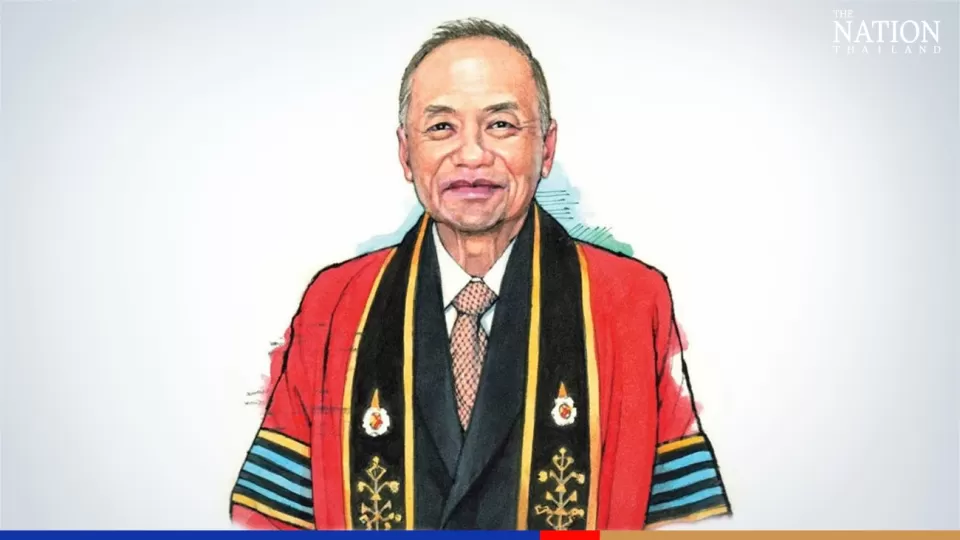December 7, 2022
BANGKOK – Forbes Asia on Tuesday unveiled its annual Heroes of Philanthropy list, which highlights altruists in the Asia-Pacific region who have shown a strong commitment to philanthropic causes like education and the environment.
Among those listed was Thailand’s Joon Wanavit, founder of Hatari Electric.
Others featured include Gautam Adani, chairman of Adani Group; Li Ka-shing, senior advisor to CK Hutchison Holdings; Melanie Perkins and Cliff Obrecht, co-founders of Canva; as well as Hiroshi Mikitani, founder and CEO of Rakuten Group.
Forbes Asia today unveiled the 16th edition of its annual Heroes of Philanthropy list, which highlights leading altruists in the Asia-Pacific region who demonstrated a strong personal commitment to philanthropic causes such as education and the environment, among others. The full list can be found at www.forbes.com/altruists and in the December issue of Forbes Asia.
The unranked list highlights philanthropists who are donating from their own fortunes and giving personal time and attention to their select causes. The list does not include corporate philanthropy except for privately held companies where the individual is a majority owner. The list is kept to a select group of 15, with nine new entrants on this year’s list. Previous honorees are considered if they have made recent significant contributions that justify a relisting.
Gautam Adani, India’s richest person, pledged 600 billion rupees (US$7.7 billion) when he turned 60 in June, making him one of India’s most generous philanthropists. The money will address healthcare, education and skill development, and will be channelled through the family’s Adani Foundation. The Adani Foundation, founded in 1996, has been spearheaded since the start by his wife Priti Adani, who is the chairperson. Each year, the foundation helps nearly 3.7 million people across India.
As climate change continues to be a major issue of concern worldwide, Hong Kong-based private equity billionaire Jean Salata and his wife Melanie gifted $200 million in June to establish the Salata Institute for Climate and Sustainability at Harvard University. The institute will coordinate research at the university, provide grants, assist course development and link students with alumni in the field. The Salatas have previously donated to other schools, including $5 million last year to help build the Salata Technology and Innovation Center at Cathedral Prep-Villa Maria in the U.S. where Jean went to high school.
Last year, Australian co-founders of Canva, Melanie Perkins and Cliff Obrecht signed the Giving Pledge, promising to donate the majority of their shares in the $26 billion (valuation) graphic design platform to support charitable initiatives. Canva has so far provided Covid-19 support in India and humanitarian response funds in Ukraine and contributed to a $10 million project in Malawi that benefits people living in extreme poverty. The company also donates access to its premium platform to over 250,000 nonprofits and has launched Canva for Education initiative, a free service designed for K-12 students and teachers worldwide.
Elsewhere, global crises such as the war in Ukraine also prompted tycoons like Japan’s Hiroshi Mikitani, the founder of e-commerce giant Rakuten, to donate to humanitarian aid. In February, Mikitani tweeted the announcement of a ¥1 billion ($7.2 million) gift to Ukraine to deal with the humanitarian fallout of Russia’s invasion earlier that month. A Rakuten online donation site started in February has raised nearly ¥1.3 billion from over 70,000 contributors to support aid efforts in Ukraine. In May, Mikitani hosted Ukrainian pop superstar Tina Karol for a charity music event in Tokyo to help raise money for the country.
Hong Kong billionaire Li Ka-shing has over the past 12 months donated over HK$1 billion ($128 million) to various initiatives in mainland China, Hong Kong and elsewhere in the world through the eponymous Li Ka Shing Foundation. This includes HK$150 million to fund research at the Chinese University of Hong Kong’s Faculty of Medicine and over HK$70 million to fight Covid-19. The foundation has sought to ease pressure on Hong Kong’s public health system by supporting private hospitals in treating non-Covid patients and funding the purchase of protective materials for elderly homes and meals for the underprivileged.
Education was a key focus for some listees this year. John Lim, cofounder of ARA Asset Management (recently acquired by ESR Cayman), tasked his elder son Andy with setting up the Lim Hoon Foundation in 2008, named after his school-teacher father. The foundation provides scholarships to so-called sandwich students – driven but disadvantaged youths in Singapore who don’t qualify for most of the country’s grades-based financial support. To date, it has granted over 1,600 bursaries totalling about S$1 million ($727,000) to students from primary school to pre-university levels. The foundation is also a longstanding donor to the Singapore Management University, to which it contributed S$3 million in April to set up the JLFO-LHF Scholarship.


